- Learning time
- 40 minutes
- First play time
- 120 minutes
Crusaders: Thy Will Be Done
Designed by: Seth Jaffee
Crusaders: Thy Will Be Done is a Crusades-themed game where players represent the Knights Templar (thoughts on this setting to the right) pushing across Europe, combating rival empires and establishing the infrastructure of their own: castles, churches, banks and farms.
There’s a board showing Europe broken into several hex-shaped regions, some of them occupied by the hostile forces of Saracens, Prussians and Slavs. Your knight begins on the West coast, and will represent you on the map. But the central focus of your attention will actually be your own player board, where the traditional mancala-type mechanic powers your progress. You begin the game with two markers in each of the six sections of your mancala, and each section represents an action: when you move markers occupying that section, you take the associated action, with more markers making the action in question more powerful.
The actions are Travel: move your knight on the board; Crusade: battle with enemy forces; Build: build one of your buildings in a a region unoccupied by an enemy; Muster: increase the size of your army; and Influence: take influence points from the supply. As influence is basically points, and the most influence wins you the game, this is the simplest action. But the others are more interesting. Travelling is necessary because you can’t build in a region that already has a building. Mustering and crusading is needed to combat unwelcoming occupants of new land. And building is really key: getting more buildings out furthers your progress in many ways: Banks make building cheaper, Farms grow your army, Churches score [i]influence[/i] and Castles allow you more flexibility on the board, going from a single knight to a potential triplet. Really, this is a game focused more on building than combat, with the latter a necessary evil: and as more enemies are defeated, their power actually grows rather than wanes, so a stronger army is needed. As the game progresses the actions get more powerful thanks to your buildings, though it’s also worth noting that you can spend a turn to flip any section of your mancala over, from it’s basic single-action side to the advance dual-actions side, where you can choose one or other action or even split your markers between them.
Note also that getting your last building constructed of each type triggers end-game bonuses, as do majorities in the the most enemies defeated. And do keep track of your influence: lots of the actions score these points, from combat to building to mustering. The game ends when all influence tokens have been played.
The guru's verdict
-
Take That!
Take That!
Not as much as you might imagine. Players don't battle each other at all, but do compete for space.
-
Fidget Factor!
Fidget Factor!
Varies massively depending on both who is playing and what stage of the game you're at. It can play at a click, or a more leisurely, puzzling-out pace
-
Brain Burn!
Brain Burn!
On the main board it's simple: spread far and wide, battle enemies and construct buildings. The individual player boards are a different matter, however, with each action taken having direct implications for future ones.
-
Again Again!
Again Again!
Lots of variety here in set-up both on the main board and the individual players, who are each given a specific power.

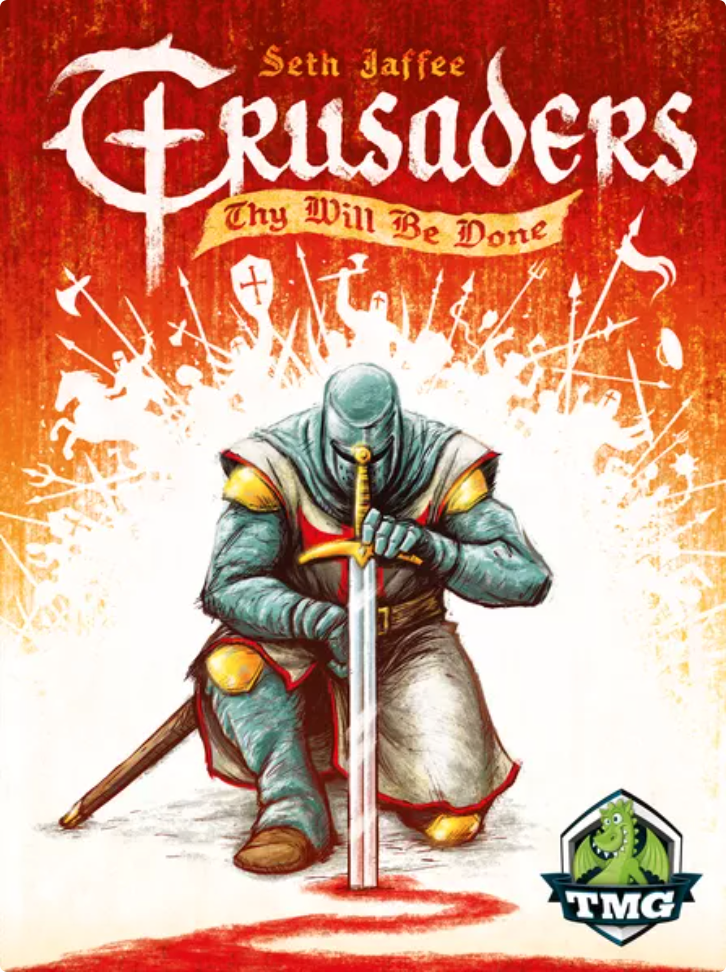
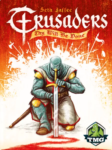

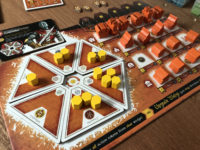
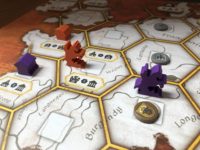
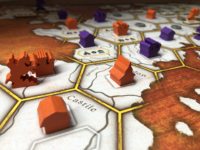
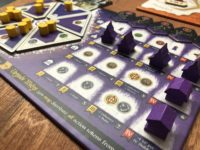


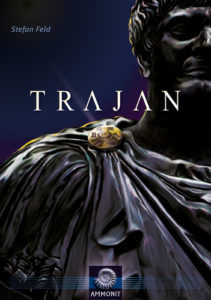
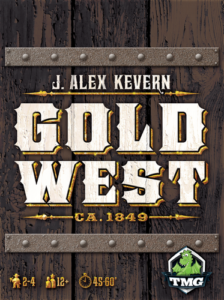
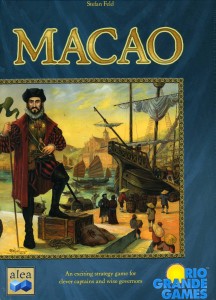
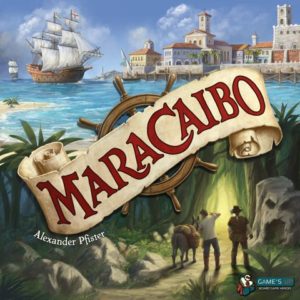
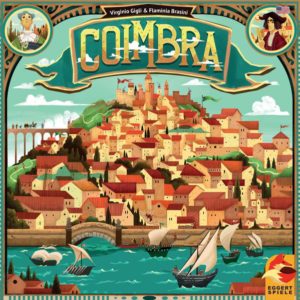
Sam says
I enjoyed Thy Will Be Done mechanically-speaking, as it is at heart a puzzle and, if there isn't as much player interaction as I'd like, it doesn't out-stay its welcome. But it's a slightly wince-inducing setting, with the uncomfortable 'clearing the path' of anyone in your way: sweeping their tokens off the board in order to build. The rulebook's caveat that the game is actually about the Knights Templar themselves, rather than the Holy War they were engaged in, rings a little hollow when you look at the box front and remember that players compare who-killed-most for extra points. There are a tonne of games - not just games but all media - that involve or invoke violence on a grand scale, and while Crusaders clearly doesn't celebrate that, it doesn't make any particularly thoughtful counterpoint either on a period of history that cost millions their lives, instead just asking the question who is the best bloodthirsty crusader. Reinforcing the predominant white European view, or just a game? Where you stand on that spectrum of extremes may influence how you feel about the game itself. For me, it feels clumsy at best.